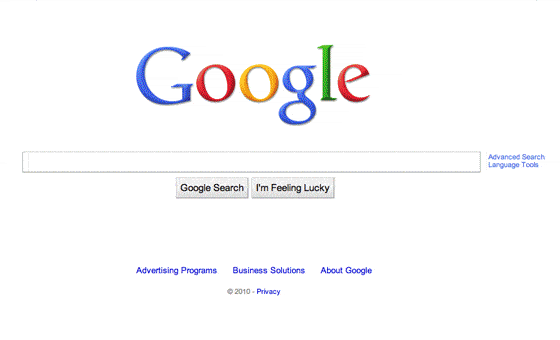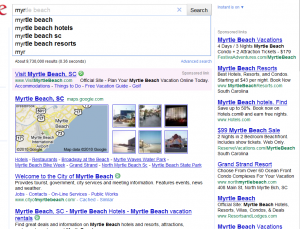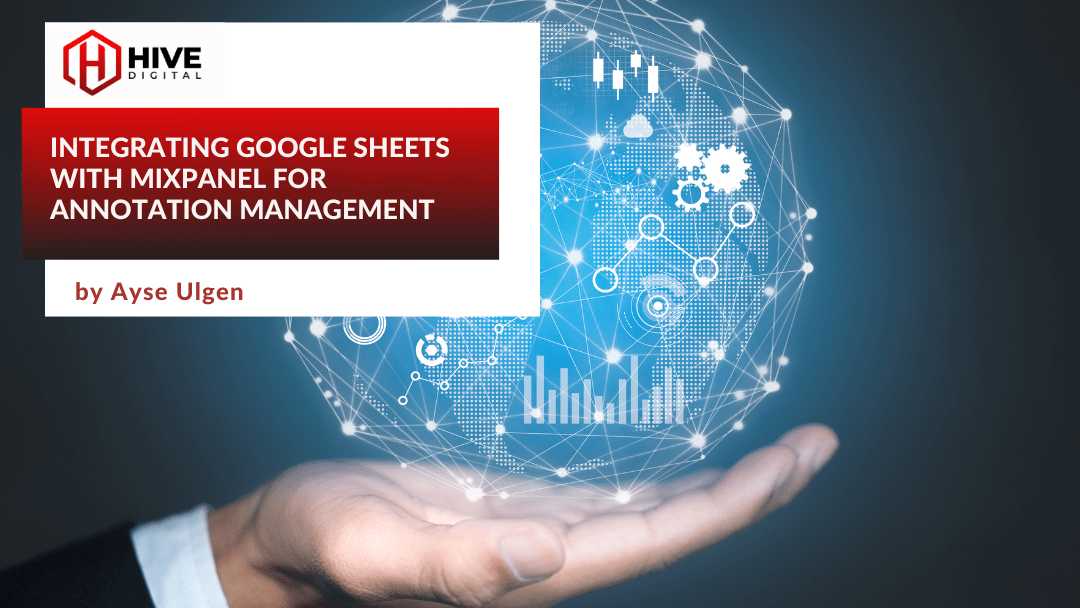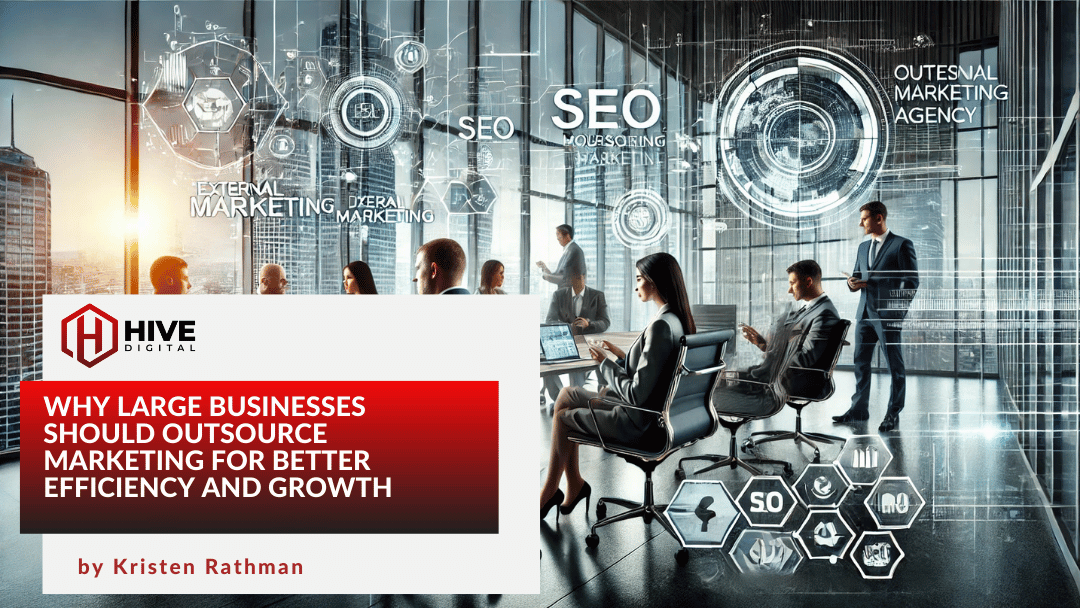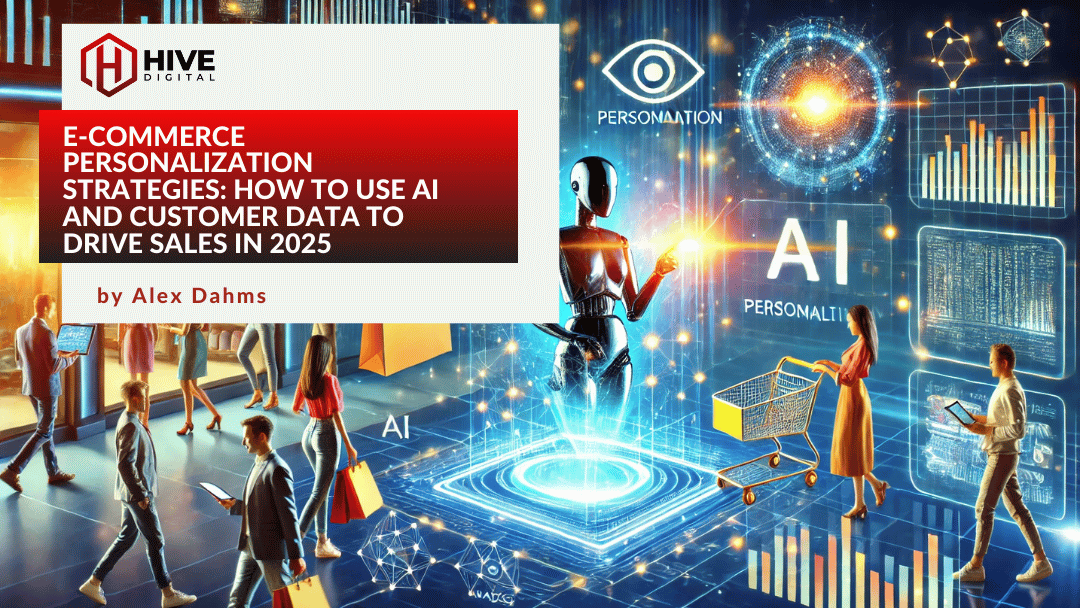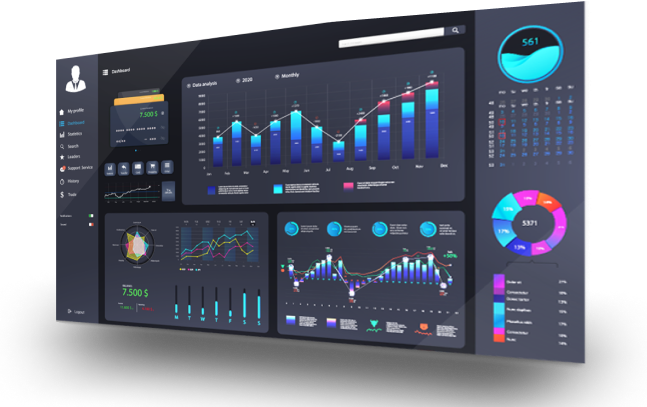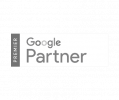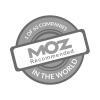Moments ago, Google Instant search went live. If you don’t see it yet, it will roll out over the next few days.
It appears to be a game changer.
Google Instant gives you realtime organic (and paid) search results as you type in the search box at google.com. Here’s an animated demo (click on the image to see it animated):
This is undeniably cool. On my browser, it’s every bit as fast as the demo graphic above. But let’s look at what it does with paid search Adwords ads.
Google Instant and Adwords Paid Search
While I’m typing in my intended search phrase, Google is not only updating organic results (predicting what I’m most likely searching for), but also begins displaying paid search ads. For example, let’s say I start typing in “myrtle”…
By the time I get to “myr,” Google is predicting that I’m most likely searching for “myrtle beach.” It has begun displaying results most relevant to that keyword. But notice that it has also begun displaying paid search ads before I have completed my intended search phrase.
Take a look at the ads being displayed. So far they relate to “myrtle beach” in general (the ad in the #1 position is “Visit Myrtle Beach” and is linked to the local chamber of commerce site), but also is showing ads for “myrtle beach hotels” and “myrtle beach resorts” (numbers two and four in the predicted search terms drop down).
All well and good. If I were searching for hotels or resorts in Myrtle Beach, I got to relevant results faster than ever. But what if I my intended search was for “myrtle beach restaurants”? I’ve just been served a page full of irrelevant ads, exactly what AdWords was designed not to do!
This raises some questions for AdWords advertisers:
- At what point is an impression generated? In the example above, if I’m bidding on “myrtle beach resorts,” am I going to get an impression every time someone starts typing in “myrtle beach restaurants” (or any one of thousands of other possibilities starting with “myrtle beach”)?
- Has Google built in a delay before crediting an impression, or perhaps a maximum “pause” time (i.e., a certain amount of time that must pass with the searcher not entering in any more characters)?
- How does this effect Google’s crediting an impression (or click) to phrase or exact match?
- What effect will this have on long tail keywords? Long tail keywords can be a gold mine for the savvy AdWords manager, allowing him/her to bid on highly-targeted terms. Will Instant cause searchers to click off before they have completed the full keyword they would have typed in before? Does this mean the broad match and shorter keywords I’ve been eliminating like crazy suddenly become more relevant?
UPDATE: The official Google Adwords blog has published a clarification about how impressions will now be credited:
Google Instant changes the way we think about impressions. With Google Instant, an impression is counted if a user takes an action to choose a query (for example, presses the Enter key or clicks the Search button), clicks a link on the results page, or stops typing for three or more seconds.
The first two impression-generators make sense to me, but the last one (stops typing for three or more seconds) is concerning. What if the person is distracted while entering the search query? What if they are a slow typer? (Parents, please make sure your kids get typing lessons!). Actually, the second one concerns me a bit as well: with Google Instant’s “flashing lights,” will users be more likely to say, “Ooh, shiny!” and click a result before they’ve reached full relevancy?
Google Instant and Ad Position
Google Instant also changes the landscape of the Google results page. Because the search suggestions box remains open (apparently always showing at least five suggestions), the organic results (and any top position paid ads) are pushed further down the page. In many cases in my browser, organic results were pushed entirely below the fold, meaning that at least for a brief time (while the search is still entering characters), only paid ads were showing! Since it appears to me that Google has increasingly made the colored underlay behind the top paid results lighter and lighter, it is likely that position 1-3 ads will be more often confused with organic results. That might sound like a benefit at first, but consider: will that increase the likelihood of irrelevant clicks, as searchers are more likely to click without much thought on an organic result than they are on what they know to be an ad.
Furthermore, as the top paid results (if any show for a particular search) are pushed further down the page, it appears to me that the top secondary positions (typically positions 4-6) are made more prominent than ever. They catch the eye more than ever before, as they appear higher (even though they’re not) and immediately to the right of the search suggestions. Will we see more activity in positions 4-6 than before?
So far we haven’t seen any answers to these questions is any official AdWords publications. What do you think the effects on paid search will be (if any)? If you’re reading this some time after the September 8, 2010, rollout of Google Instant, have you noticed any significant changes in your impressions, click-through rates, and CPC bids-by-position since the inception?

